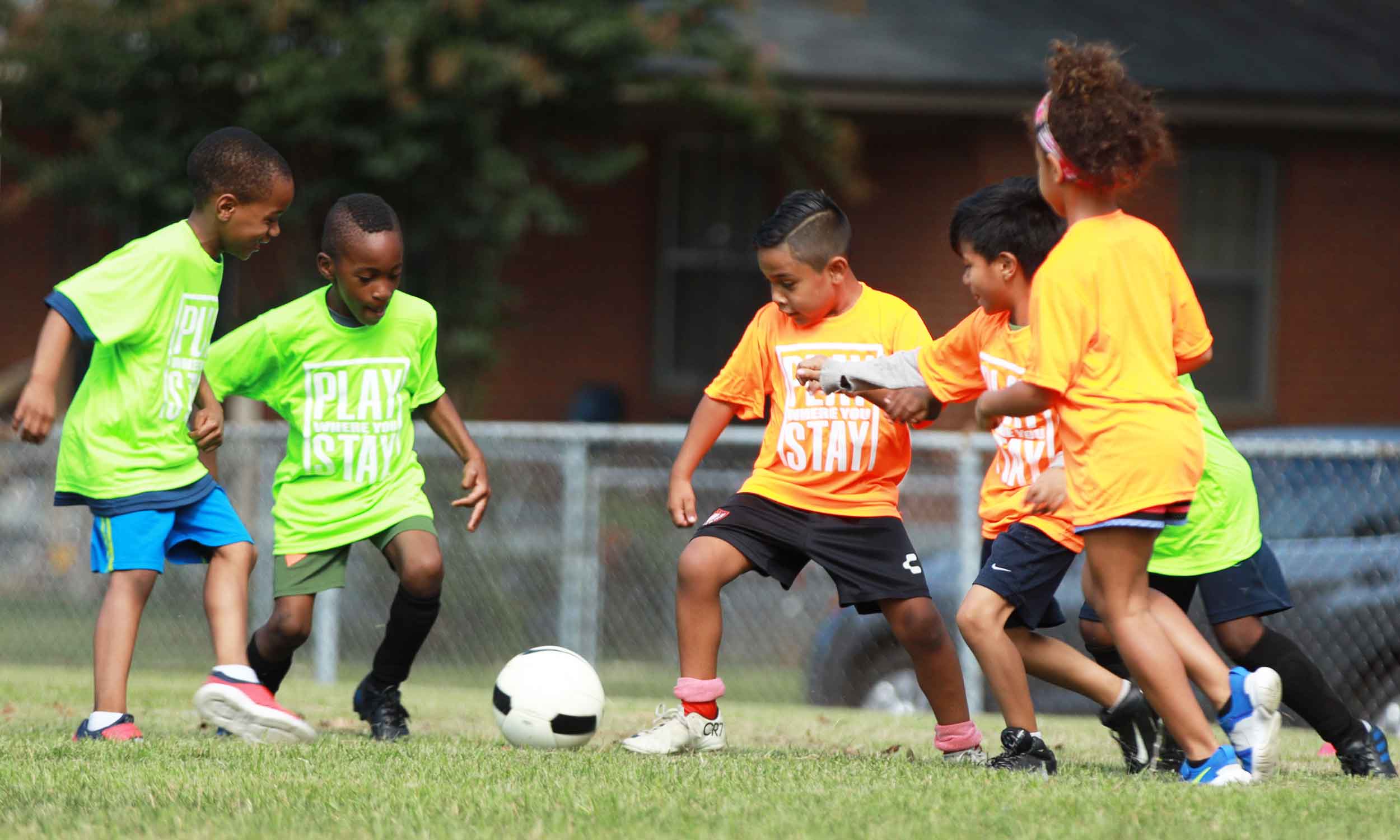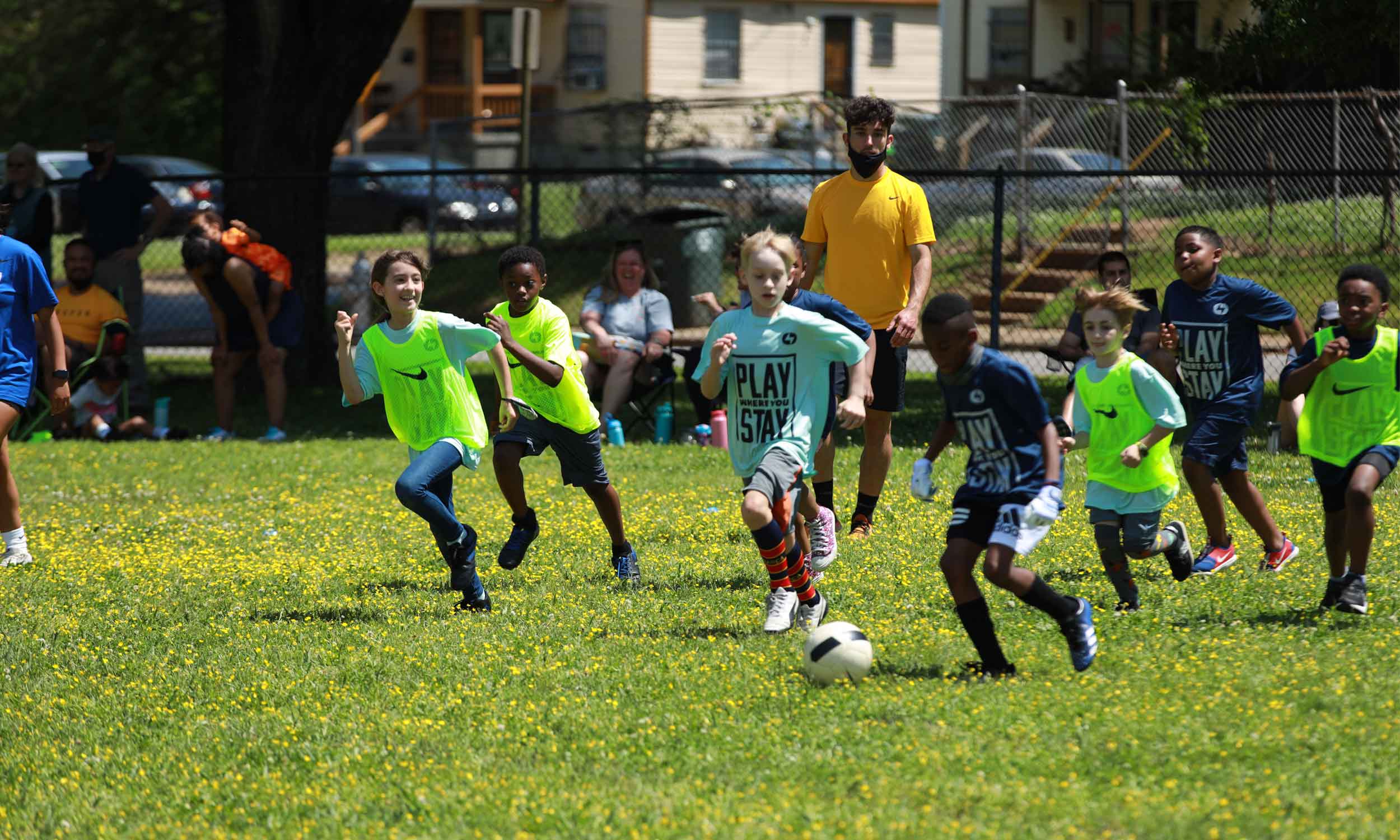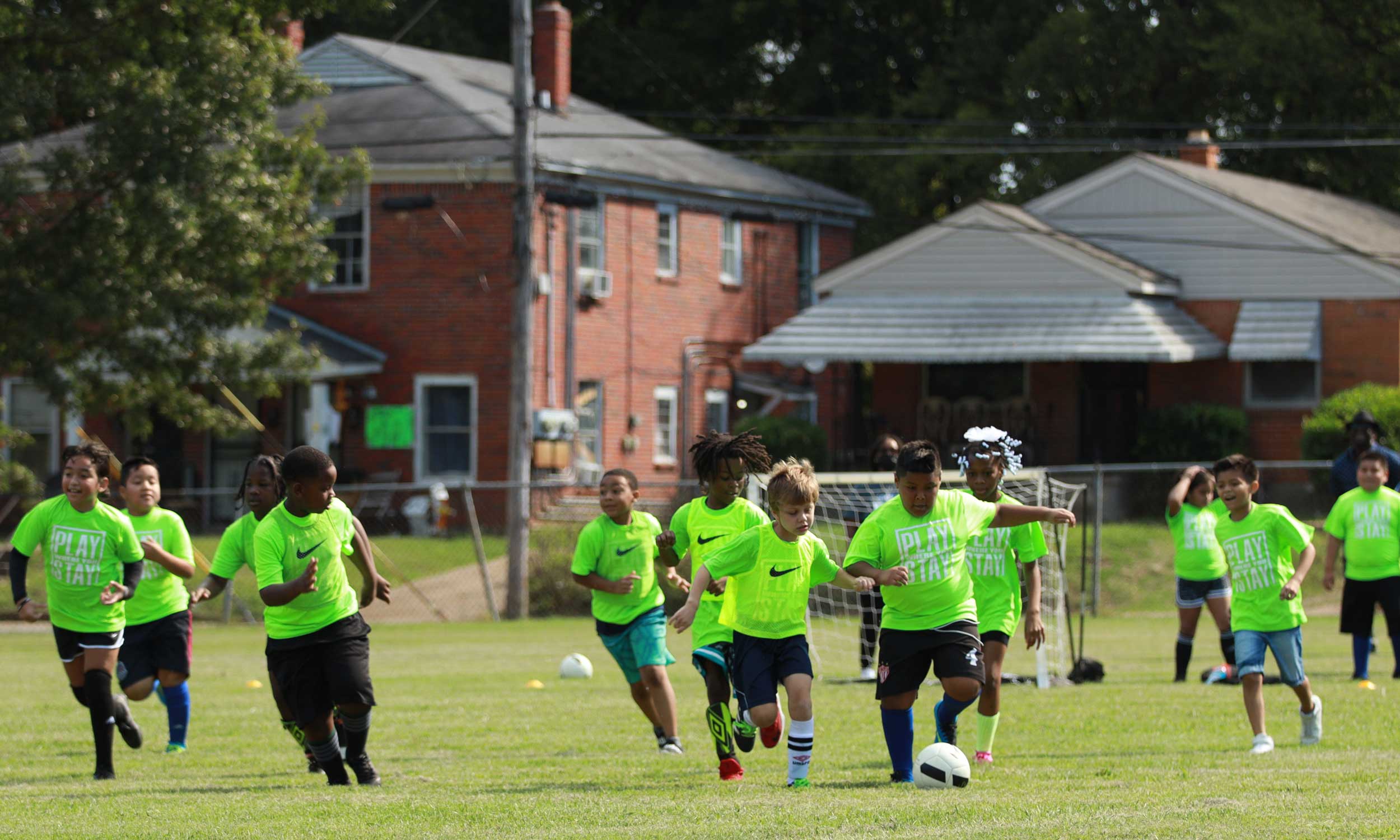Soccer, also known as football, is the world’s most popular sport and has a long history of fostering teamwork, discipline, and physical fitness. Despite its global popularity, soccer has yet to gain the same level of popularity in the United States. However, there are many reasons why it is important to increase the participation of children in soccer in the United States.
Soccer is an excellent form of exercise and can help children develop physical fitness and coordination.

PWYS Gameday Event
Klondike Park - Memphis, TN
According to the Centers for Disease Control and Prevention (CDC), children should engage in at least 60 minutes of physical activity every day. Soccer provides an enjoyable way for children to meet this recommendation and promote a healthy lifestyle. Soccer is an excellent form of exercise for children as it involves a wide range of physical movements, including running, sprinting, jumping, and changing direction, which can help to improve cardiovascular fitness, coordination, and overall physical fitness. Additionally, soccer is a team sport, which can help to promote teamwork, social interaction, and a sense of community. Furthermore, it is widely played and enjoyed all over the world, making it easy for children to find opportunities to play and enjoy the game.
Soccer can help children develop important life skills such as teamwork, communication, and problem-solving.

PWYS Girls Competitive Team
Mike Rose Soccer Complex - Memphis, TN
Playing on a team requires children to work together to achieve a common goal, and it also teaches them to communicate effectively and make quick decisions. These skills are not only valuable on the soccer field but also in everyday life.
Teamwork is an essential aspect of soccer, as players need to work together to move the ball down the field and score goals. Children learn to trust and rely on their teammates, as well as to share responsibilities and make decisions together.
Communication is also crucial in soccer, as players need to communicate with each other on the field in order to coordinate their movements and plan strategies. Children learn to communicate effectively through verbal and nonverbal cues, such as calling for the ball or making hand signals.
Problem-solving skills are also developed through playing soccer, as children learn to make quick decisions under pressure and adapt to changing game situations. They learn to read the game and anticipate the movements of their opponents, and to think critically about how to outsmart them.
Overall, soccer provides children with a fun and engaging way to develop important life skills such as teamwork, communication, and problem-solving, which can serve them well in other areas of their lives as well.
Soccer can serve as a positive outlet for children, providing an opportunity for them to engage in healthy competition and build self-confidence.

PWYS Gameday Event
Klondike Park - Memphis, TN
Soccer can serve as a positive outlet for children by providing an opportunity for them to engage in healthy competition and build self-confidence. It can also be a way for children to meet new friends and form social connections, which can be especially beneficial for children who may struggle to make friends in other settings.
Participating in organized sports such as soccer can give children a sense of belonging and purpose, as well as the opportunity to learn new skills and set goals for themselves. The competitive nature of soccer can also help children to develop a healthy sense of competition, which can be beneficial in other areas of their lives as well.
Playing soccer can also help children to build self-confidence, as they learn to overcome challenges and achieve success through hard work and perseverance. Through practicing and competing in soccer, children learn to believe in their abilities, and to take pride in their accomplishments. When a child makes a good play, scores a goal, or helps the team win, it will boost the child’s self-esteem and confidence.
Additionally, soccer can also provide children with an outlet for stress and emotions, as it allows them to channel their energy and focus into something positive and productive. The physical activity involved in playing soccer can also release endorphins, which can help to improve mood and reduce stress.
Soccer can serve as a positive outlet for children by providing an opportunity for healthy competition, physical activity, and building self-confidence, which can help to promote mental and emotional well-being.
Soccer is a relatively low-cost sport and is accessible to children from all backgrounds.

PWYs Training
Chandler Park - Memphis, TN
The equipment required to play soccer is minimal, and it can be played on a variety of surfaces, including grass, concrete, and artificial turf, which makes it accessible to a wide range of communities.
The basic equipment needed to play soccer includes a ball, shoes, and comfortable clothing. The cost of a ball and shoes are relatively affordable and can be purchased at a variety of price points, making it accessible to children from different socioeconomic backgrounds.
Additionally, soccer is a sport that is widely played and enjoyed all over the world, making it easy for children to find opportunities to play and enjoy the game. Community centers, schools, and local soccer clubs often offer programs for children at little or no cost.
Furthermore, soccer can be played on a variety of surfaces, including grass, concrete, and artificial turf, which makes it accessible to a wide range of communities. This allows children from all backgrounds to participate regardless of the availability of sports facilities or equipment.

PWYS Boys Competitve Team
Dallas State League Tournament - Dallas, TX
Finally….soccer is a sport that can be enjoyed for a lifetime and provide children with a wide range of physical, mental, and emotional benefits. It can help to improve cardiovascular fitness, coordination, and overall physical fitness, as well as promote teamwork, social interaction, and a sense of community. Furthermore, it can provide children with an outlet for stress and emotions, as it allows them to channel their energy and focus into something positive and productive.
Increasing participation in soccer can have a positive impact on children’s overall well-being and development. Studies have shown that children who participate in organized sports are more likely to have better academic performance, improved mental and emotional well-being, and a reduced risk of developing unhealthy habits such as smoking or drug use.






